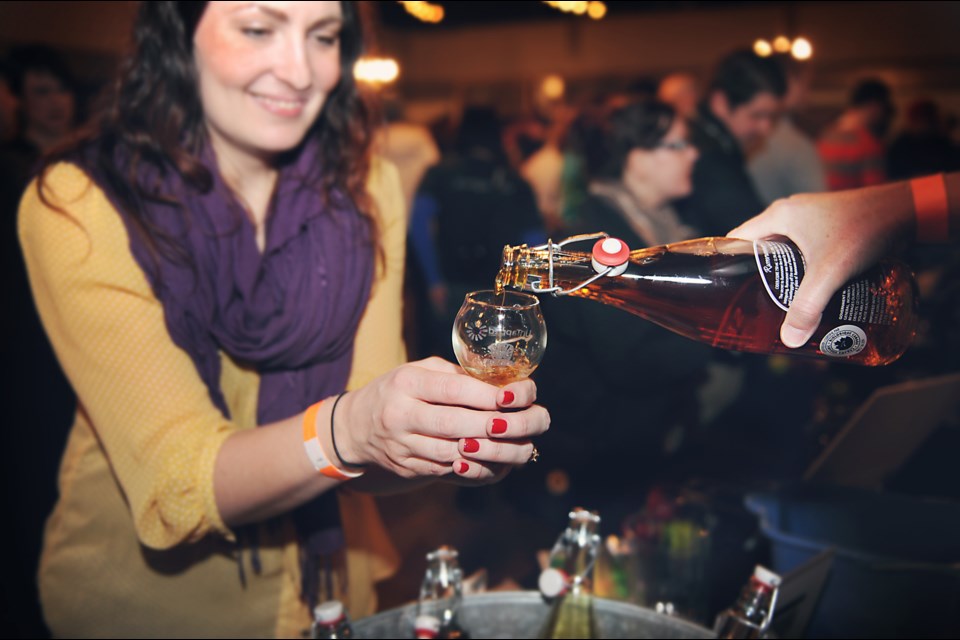When Adam Chatburn moved to Vancouver from Blackburn, England six years ago, the reason certainly hadn’t anything to do with Canadian beer.
While the long-time home brewer of cider and mead wanted a change of scenery, it didn’t take long to realize there was more to beer culture in his new home than what the television ads of fictional mountain creatures and voluptuous snow bunnies would have anybody believe.
“Canada didn’t have a great reputation for great beer but when I came here and realized how much great beer there was, and what the world didn’t know about, I wanted to get involved,” said Chatburn, now the president of the Vancouver chapter of the Campaign for Real Ale Society of British Columbia, better known as CAMRA.
The group originated in England more than 40 years ago because of the proliferation of factory beers replacing traditional regional beers.
Even now, in more modern times, there’s still far more to the group than hanging out in a pub with a pint as evidenced by this past Saturday’s cider and gluten-free beer tasting event at the WISE Hall.
While most urban eateries and bakeries have recently been offering gluten-free options for those with celiac disease, or even those who are just sensitive to the sticky substance found in many grains, CAMRA realized there must be no fate more terrible for a beer lover than not being able to drink beer.
“Two years ago there were one or two and they weren’t very nice,” said Chatburn of the gluten-free beers that were available at the time. “I think people tried them and they were turned off quite quickly.”
Thus, CiderWISE was born. And Chatburn plans to make it an annual event to showcase some of the new options available to gluten-sensitive beer-drinkers.
“We have people who are new to the experience of tasting beer and we’ve been amazed by the response,” he said. “It’s not just, ‘Here’s the beer, drink the beer!’ We’re here so you can learn about this stuff, get interested in it, find out more about it, find out what flavours you like.”
While cider is already gluten-free by nature, there are two approaches to making a gluten-free beer. One is using grains that don’t have any gluten, such as oats, rice, or millet. The other is removing the gluten from the beer by adding an enzyme that breaks down the gluten.
The result is that the latter tastes more like traditional beer, but still may contain traces of gluten, which is only fine for those with minor sensitivities.
There is much more to the process, of course, which is why there was a continual cluster of people listening to Danny Seeton all afternoon Saturday. Seeton, a graduate student at the University of B.C., is CAMRA’s education liaison and has a personal interest in perfecting a gluten-free beer because celiac disease runs in his family.
Experimenting with beer is something that comes naturally to local craft beer lovers, said Chatburn, adding that the local microbrewery scene has exploded in the last few years.
“It’s fantastic it’s all happening here,” he said. “Places like England and Germany, they’re classic places for beer but there isn’t the variety.
They’re very set in their ways in what they like and how they make it. In B.C., anything’s up for grabs,” he said.
“It’s like, ‘Oh, we’re going to try and make this Finnish beer made with… juniper berries!’ There’s this wonderful sense of experimentation that goes with it. And I think that’s got something to do with the multiculturalism… There’s room for different possibilities here.”



